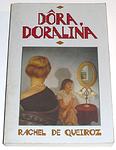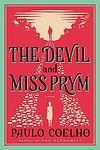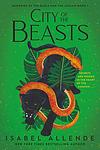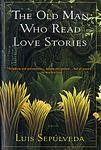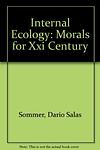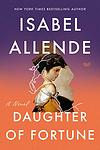The Greatest Brazilian, Chilean "Fiction" Books Since 1950
Click to learn how this list is calculated.
This list represents a comprehensive and trusted collection of the greatest books. Developed through a specialized algorithm, it brings together 300 'best of' book lists to form a definitive guide to the world's most acclaimed books. For those interested in how these books are chosen, additional details can be found on the rankings page.
Genres
Countries
Date Range
Reading Statistics
Click the button below to see how many of these books you've read!
Download
If you're interested in downloading this list as a CSV file for use in a spreadsheet application, you can easily do so by clicking the button below. Please note that to ensure a manageable file size and faster download, the CSV will include details for only the first 500 books.
Download-
1. The House of the Spirits by Isabel Allende
"The House of the Spirits" is a multi-generational saga that explores the lives of the Trueba family, set against the backdrop of political upheaval in an unnamed Latin American country. The narrative is driven by the family's strong and magical women, including clairvoyant Clara and her granddaughter Alba. The story spans over three generations, weaving together personal, social, and political threads, and is rich in elements of magical realism. The novel explores themes of love, violence, social class, and the struggle for power.
-
2. The Alchemist by Paulo Coelho
A young Andalusian shepherd named Santiago dreams of finding a worldly treasure and sets off on a journey across the Egyptian desert in search of it. Along the way, he encounters a series of characters who impart wisdom and help guide his spiritual journey. The novel explores themes of destiny, personal legend, and the interconnectedness of all things in the universe. The boy learns that true wealth comes not from material possessions, but from self-discovery and attaining one's "Personal Legend".
-
3. The Savage Detectives by Roberto Bolaño
"The Savage Detectives" is a novel that follows the lives of two Latin American poets, Arturo Belano and Ulises Lima, who are founders of a literary movement called "visceral realism." The book is divided into three parts and is narrated by multiple characters, providing different perspectives on the protagonists. The narrative spans over 20 years, following the poets' journey from Mexico City to Europe, Israel, and Africa, as they search for a mysterious poetess and navigate through the world of literature, sex, drugs, and the complexities of life.
-
4. The Hour of the Star by Clarice Lispector
"The Hour of the Star" is a poignant narrative that explores the life of Macabéa, a poor, unattractive, and naive typist living in the slums of Rio de Janeiro. The story is narrated by Rodrigo S.M., a sophisticated writer who struggles with how to accurately portray Macabéa's simple existence and her tragic fate. The novel delves into themes of identity, poverty, and the human condition, presenting a stark contrast between the lives of the rich and the poor, the educated and the ignorant, and the beautiful and the plain.
-
5. 2666 by Roberto Bolaño
The novel is a sprawling, ambitious work that spans continents and time periods, centering around an elusive, reclusive German author. It intertwines five different narratives: a group of European academics searching for the author, a professor in Mexico dealing with his own personal crises, a New York reporter sent to cover a boxing match in Mexico, an African-American journalist in Detroit, and the horrifying and unsolved murders of hundreds of women in a Mexican border town. The narratives are linked by themes of violence, mystery, and the search for meaning in a chaotic world.
-
6. The Devil to Pay in the Backlands by Joao Guimaraes Rosa
"The Devil to Pay in the Backlands" is a complex narrative that follows the life of a Brazilian sertanejo (backlands dweller) who becomes a bandit and a feared killer. Tormented by his violent actions, he embarks on a metaphysical journey, wrestling with philosophical and religious questions, and trying to reconcile his deep belief in fate and predestination with his own free will. The book is notable for its innovative language, blending regional dialects with neologisms and classical references, which adds to its rich portrayal of the Brazilian backlands.
-
7. The Passion According to G.H. by Clarice Lispector
"The Passion According to G.H." is a philosophical novel that delves into the existential crisis of a wealthy Brazilian woman who, after killing a cockroach in her maid's room, experiences a profound metaphysical crisis. The narrative unfolds as a stream of consciousness that explores themes of identity, existence, and the nature of reality. The protagonist's journey forces her to confront her own humanity, the concept of nothingness, and the chaotic, interconnected nature of life. It's a profound and introspective exploration of the human condition and the meaning of existence.
-
8. Veronika Decides to Die by Paulo Coelho
The novel centers around Veronika, a young woman from Slovenia who, disillusioned by her life and the world, decides to commit suicide. Surviving her attempt, she wakes up in a mental institution where she learns that her failed attempt has left her with only a few days to live. During her stay, she meets a variety of characters, each with their own mental issues, who help her to see her life in a new perspective. The story explores themes of madness, individuality, and the value of life, challenging societal norms and questioning the meaning of sanity.
-
9. Of Love and Shadows by Isabel Allende
Set against the backdrop of a South American country under a military dictatorship, this novel follows the story of a woman journalist and her lover, a photographer, who, while working together, uncover a hidden mass grave in a remote part of their country. Their discovery leads them into danger as they try to expose the truth about the brutal regime ruling their country, while also dealing with their own personal issues and their growing love for each other. The story is a blend of romance and political drama, showing the power of love and courage in the face of oppression and fear.
-
10. Gabriela, Clove and Cinnamon by Jorge Amado
Set in the 1920s in the Brazilian town of Ilhéus, the novel tells the story of a beautiful and charismatic migrant worker, Gabriela, who becomes a cook in the home of a wealthy bar owner. As the town, historically dominated by a few wealthy cacao planters, undergoes economic and social changes, Gabriela and her employer fall in love. Their relationship, however, is challenged by their different social statuses, the town's traditional values, and the employer's political ambitions. The story is a vivid portrayal of Brazilian culture, exploring themes of race, gender, class, and tradition versus progress.
-
11. Tent of Miracles by Jorge Amado
"Tent of Miracles" is a satirical novel that explores the themes of racism, colonialism, and the power of knowledge. The story revolves around the life of a poor, mixed-race Bahian scholar who is unrecognized in his own land but becomes a posthumous celebrity when a Nobel laureate praises his work. This sudden fame brings attention to his writings and his message against racial discrimination, and the book also portrays the vibrant culture and diversity of Bahia, Brazil.
-
12. La Brecha by Mercedes Valdivieso
"La Brecha" is a groundbreaking Chilean novel that delves into the life of a middle-class woman who, after years of conforming to traditional gender roles and a subservient position within her marriage, begins to question the societal norms that have long dictated her existence. As she becomes increasingly aware of the oppressive structures surrounding her, she embarks on a journey of self-discovery and liberation. The novel explores themes of feminism, identity, and personal freedom, challenging the status quo of the time and advocating for the empowerment of women to break free from the constraints imposed by a patriarchal society.
-
13. Dora, Doralina by Rachel de Queiroz
This novel follows the journey of a young woman in early 20th-century Brazil as she breaks free from the constraints of a repressive household and an arranged marriage. Yearning for independence and driven by a rebellious spirit, she embarks on a transformative adventure that takes her from the conservative hinterlands to the more liberal coastal cities. Along the way, she encounters a variety of characters, confronts the challenges of a society in flux, and seeks to define her own identity against the backdrop of a country grappling with modernization and change. Her story is a poignant exploration of self-discovery, feminism, and the quest for personal freedom.
-
14. Os Nacionalismos Africanos by Mario de Andrade
"Os Nacionalismos Africanos" explores the rise of African nationalism during the mid-20th century, delving into the various factors that fueled the movement across the continent. The book examines the impact of colonialism, the emergence of Pan-Africanism, and the struggles for independence experienced by African nations. Through a meticulous analysis of historical events and political ideologies, the author provides a comprehensive understanding of the complex dynamics that shaped African nationalism and its enduring legacy in the post-colonial era.
-
15. Dona Flor And Her Two Husbands by Harriet de Onís, Jorge Amado
In this vibrant and humorous novel, we follow the life of a young Brazilian widow, Dona Flor, who is renowned for her irresistible culinary talents and her dedication to her students at the cooking school she runs. After the untimely death of her wild, irresponsible, but passionately loved first husband, she eventually remarries a man who is the polar opposite: kind, considerate, and utterly devoted, yet lacking the fiery passion of her first spouse. Her life takes an unexpected turn when her first husband's ghost returns, leading to a peculiar and comedic arrangement where she finds herself juggling the affections and demands of both her deceased and living husbands, challenging her notions of love, marriage, and fidelity in a tale that celebrates the complexity of human relationships and the cultural tapestry of Brazilian society.
-
16. The Devil and Miss Prym by Paulo Coelho
A stranger arrives in the small town of Viscos, carrying with him a choice that could bless or curse the entire community. The town's inhabitants are forced to confront their deepest fears and question their moral compasses as they wrestle with the stranger's proposition: he will give them a fortune in gold if they kill one of their own. The stranger's presence stirs up chaos and brings to light the darkness within the human soul, challenging the townsfolk to make a decision that will determine their future.
-
17. A Bag Of Stories by Edla Van Steen
"A Bag of Stories" is a collection of short stories that delve into the complexities of human relationships and emotions, exploring themes such as love, loss, and the intricacies of family dynamics. The narrative weaves through the lives of various characters, each story offering a glimpse into their personal struggles and triumphs, often revealing the unexpected ways in which people's lives intersect. With a blend of poignancy and humor, the book captures the essence of everyday experiences, highlighting the profound impact of seemingly ordinary moments and the enduring strength of the human spirit.
-
18. City of the Beasts by Isabel Allende
A 15-year-old boy is forced to move in with his eccentric grandmother after his mother falls ill. Together, they embark on a journey to the Amazon rainforest in search of a legendary, healing beast. Along the way, they encounter various challenges, including dangerous animals, harsh environments, and a group of indigenous people with mystical powers. The boy learns to overcome his fears and prejudices, forming a strong bond with the indigenous people and the rainforest itself.
-
19. The Old Man Who Read Love Stories by Luis Sepúlveda
The book tells the story of an elderly man who, having settled in a remote Amazonian village, develops a passion for reading romance novels to escape the monotony of his daily life. His peaceful existence is disrupted when he is called upon to track down an ocelot that has been killing the local villagers' animals. As he ventures into the jungle, his journey becomes both a physical and emotional adventure, intertwining his love of literature with his deep respect for nature, and ultimately leading him to confront not only the wild cat but also the complexities of human nature and love.
-
20. Internal Ecology Morals For Xxi Century by Dario Salas Sommer
This book delves into the intricate relationship between individual moral development and the broader ecological balance of our planet, proposing that the environmental crises of the 21st century are deeply intertwined with the moral and ethical decay observed in contemporary society. The author argues that by fostering a deeper understanding of our internal ecology—our thoughts, emotions, and spiritual well-being—we can cultivate a more harmonious relationship with the external world. Through a blend of philosophical insight and practical guidance, the text invites readers to embark on a journey of personal transformation as a foundational step towards addressing the global environmental challenges of our time, emphasizing the critical role of individual responsibility and ethical conduct in shaping a sustainable future.
-
21. The Obscene Bird Of Night by José Donoso
This novel is a labyrinthine exploration of identity, madness, and the nature of reality, told through the fragmented narrative of a reclusive man who has lived his life in seclusion on a decrepit estate. As the protagonist delves into his past, he recounts his experiences among the deformed and the destitute, the aristocracy and the servants, while grappling with his own fears and illusions. The narrative weaves a tapestry of grotesque imagery, mythological allusions, and a collapsing social order, challenging the reader to distinguish between truth and fabrication in a world where the boundaries of sanity are blurred.
-
22. Distant Star by Roberto Bolaño
"Distant Star" is a chilling novel set in Chile following the 1973 coup that overthrew Salvador Allende. The story focuses on a character who uses his position as a member of the Chilean Air Force to commit heinous acts of violence. His fascination with poetry and aerial acrobatics is interwoven with his terrifying actions, creating a disconcerting contrast. The narrative explores the horrific realities of political upheaval, the fine line between art and brutality, and the long-lasting effects of trauma.
-
23. Death And The Maiden by Ariel Dorfman
In a post-dictatorship country, a former political prisoner, Paulina, encounters a man whom she believes to be her former torturer. She takes him captive and subjects him to a mock trial, seeking justice for the atrocities she endured. As the tension escalates, the play delves into themes of truth, revenge, and the complex aftermath of trauma, challenging the audience to question the blurred lines between victim and perpetrator in a society grappling with its dark past.
-
24. Daughter Of Fortune by Isabel Allende
This novel is a sweeping tale of love, adventure, and discovery set against the backdrop of the California Gold Rush. It follows the journey of a young orphan raised in the British colony of Valparaíso, Chile, who embarks on a daring quest to find her lover in the goldfields of California. Along the way, she transforms from a naive girl into a strong and independent woman, encountering a diverse cast of characters who shape her destiny. The story delves into themes of freedom, identity, and the pursuit of fortune, offering a rich exploration of historical events through the eyes of a determined protagonist seeking her place in a rapidly changing world.
-
25. Trust by Hernán Díaz
"Trust" by Hernán Díaz is a novel that follows the journey of a young man named Rafael, who leaves his home in Mexico to pursue the American Dream in the 19th century. Rafael's journey takes him through the Wild West, where he encounters a diverse cast of characters and faces numerous challenges. Along the way, he learns about the complexities of trust and betrayal, and ultimately discovers the true meaning of home and belonging. The novel is a poignant exploration of identity, immigration, and the American experience.
Reading Statistics
Click the button below to see how many of these books you've read!
Download
If you're interested in downloading this list as a CSV file for use in a spreadsheet application, you can easily do so by clicking the button below. Please note that to ensure a manageable file size and faster download, the CSV will include details for only the first 500 books.
Download











